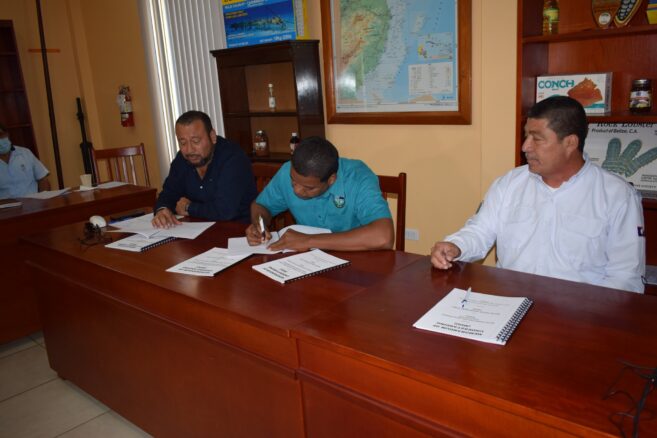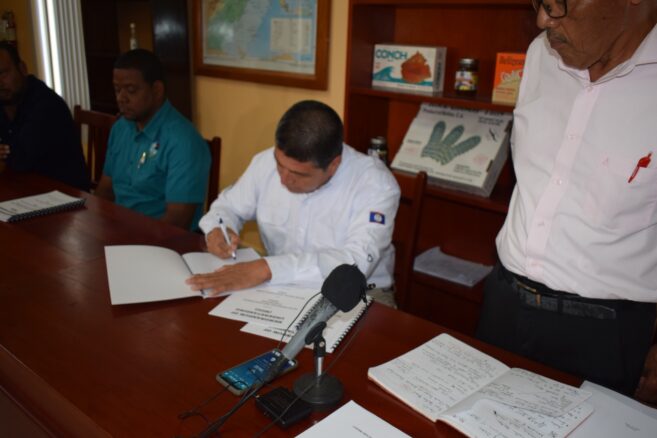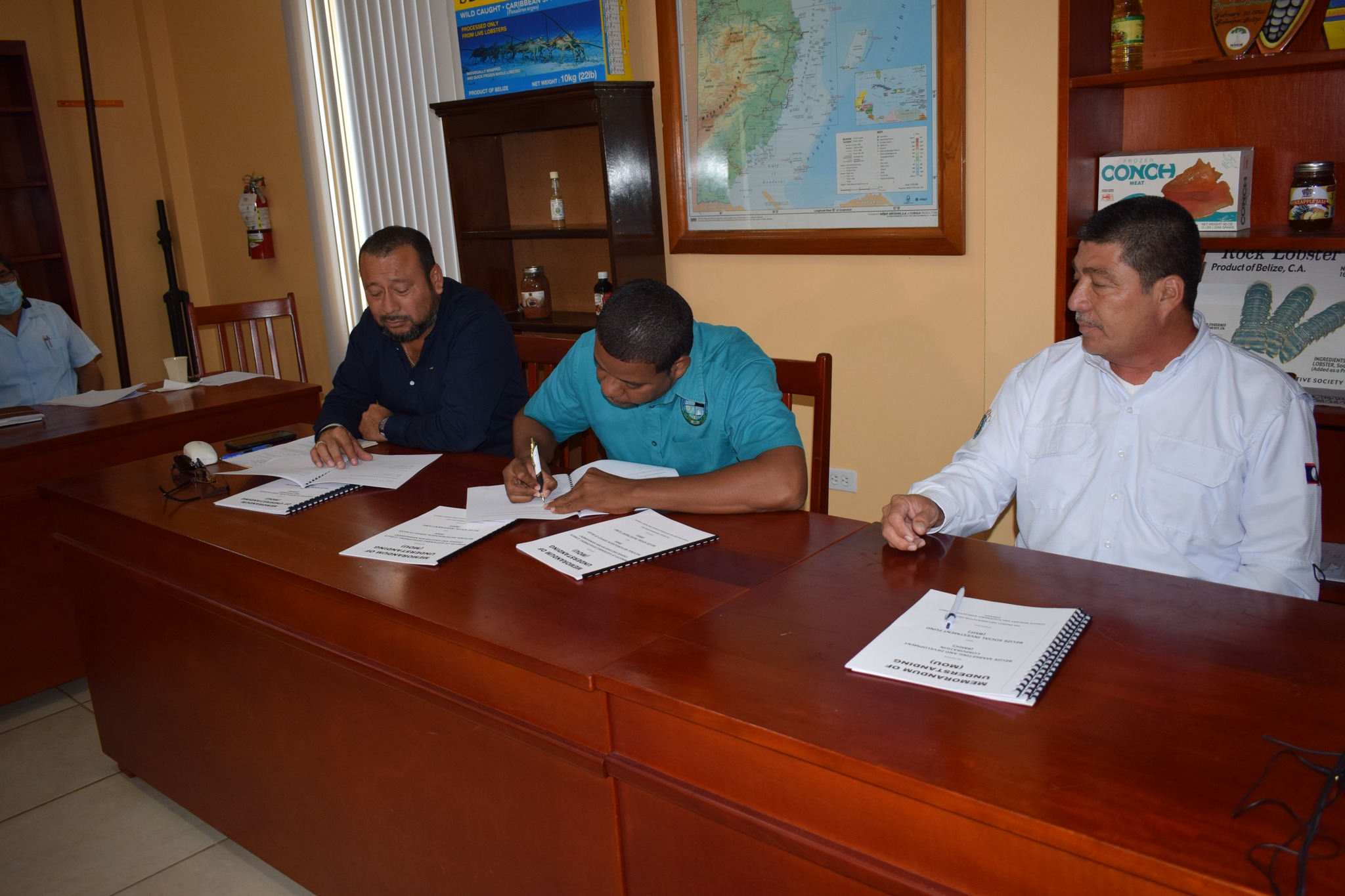A memorandum of understanding for the Climate Resilient and Sustainable Agriculture Project (CRESAP) was signed by the Ministry of Agriculture, Food Security and Enterprise, Belize Agriculture Health Authority, Pesticides Control Board, University of Belize, the National Meteorological Service of Belize, and the Belize Marketing and Development Corporation.
The CRESAP is being financed by an International Bank for Reconstruction and Development (IBRD) loan of US$25 million, US$2.5 of counterpart funds and US$18.20 million of commercial financing. Under the project, support will be provided to agricultural producers to adopt climate-smart agriculture technologies and practices via matching grants and private capital mobilization. Additionally, investments in strategic collective agricultural infrastructure assets will be made to contribute to increased agricultural production and sustainability while making farmers less vulnerable to climate change.
Direct beneficiaries of the CRESAP include 7,300 heads of household, of whom 7,000 will be farmers. When all members of the beneficiary households are considered, a total of 29,000 individuals will benefit, and of this, about 28,700 will be members of farm households. Furthermore, the project will aim for at least 30 percent of its beneficiaries to be women farmers.
Under CRESAP, relevant ministries and public institutions will also benefit from strengthened institutional capacity.
The CRESAP consists of two components:
Component 1: Institutional Strengthening (US$2.9375 million – financed by IBRD). This component focuses on strengthening the capacity of key public institutions (government agencies and academic organizations) to support a more productive and sustainable agricultural sector. The component will finance goods, small works, equipment, studies, training, consulting, and advisory services to Ministry of Agriculture, Food Security and Enterprise; Belize Agriculture Health Authority; Pesticides Control Board; University of Belize; National Meteorological Service; and Belize Marketing and Development Corporation.
Component 2: Investments in Climate-Smart Agriculture (Total Cost: US$39.7 million, of which IBRD: US$19 million; commercial finance from Participating Financial Institutions (PFIs): US$18.2 million, and beneficiary farmers: US$2.5 million).
This component will finance three subcomponents: The three subcomponents are interrelated and complementary leading to the objective of strengthening the capacity of farmers and participating financial intermediaries engaging in climate-smart agricultural investments under the Project, as to be able to take advantage of the provision of financing to farmers (matching grants and loans from PFIs) to adopt CSA technologies and practices, and increasing their productivity, levels of income and resiliency to climate change and weather events.
Given the vulnerability to climate disasters, the project contains a Contingent Emergency Response Component.

Share
Read more

